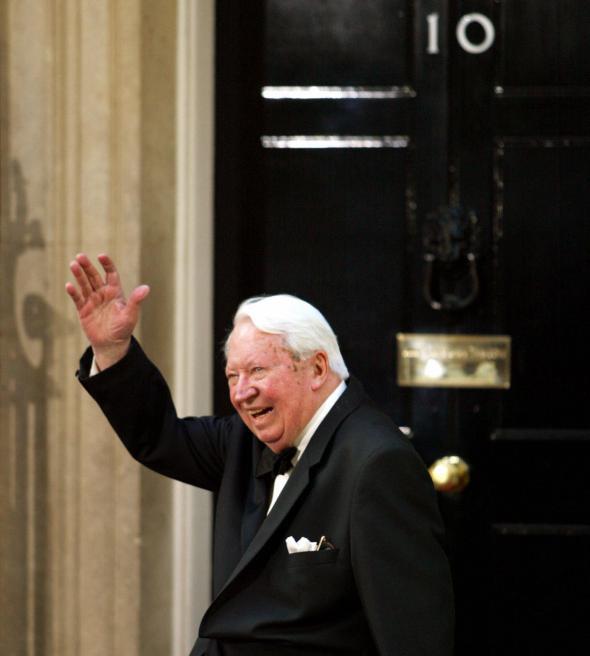Four law enforcement agencies in the U.K. are investigating claims that Edward Heath—the country’s Conservative prime minister from 1970 to 1974—sexually abused children, the Guardian reports. Heath, who died in 2005, is the most prominent politician who has been accused of such abuse in an ongoing series of scandals implicating a disturbingly long list of British public figures.
Per the Guardian, Heath is being investigated by police forces in Jersey, Kent, and London as well as by the national Independent Police Complaints Commission in a case related to a complaint made in Wiltshire. News reports on the cases are fairly vague, the only detail on a specific crime Heath is accused of having come from a sensationalistic piece in the tabloid Daily Mirror based on the account of an individual who doesn’t appear to have spoken to authorities yet.
Heath was succeeded as leader of the Conservative Party in 1975 by Margaret Thatcher.
A massive number of accusations of sexual abuse of minors have also been made in recent years against other powerful British figures—by one official count, some 260 “high-profile” men (some living and some dead) are the subject of current investigations, and a number have been convicted of crimes. Several of the investigations are centered around children’s homes, hostels, and the like, which are suspected of having been the locations of numerous assaults perpetrated by different individuals. Besides Heath, the most well-known figure to have been implicated is likely BBC host and entertainer Jimmy Savile, who died in 2011. Some of the allegations against Savile were made before his death, but he was never prosecuted; subsequent investigations found evidence of some 500 allegations of abuse against him in total.
A national authority called the Independent Inquiry Into Child Sexual Abuse has been created, under the auspices of the national Home Office, to investigate the culpability of institutions including police, schools, courts, and others in failing to prevent or adequately uncover and punish what seems to have been widespread criminal sexual conduct. The first two proposed chairs of the committee withdrew because of concerns that they were too connected to people and entities that might need to be scrutinized; the judge ultimately selected as chair is not even from the U.K. proper but, rather, from New Zealand.
